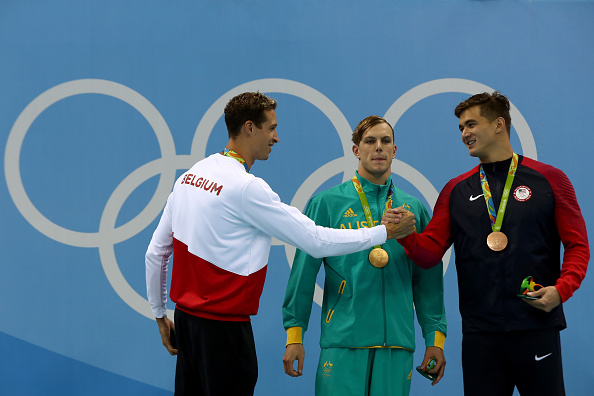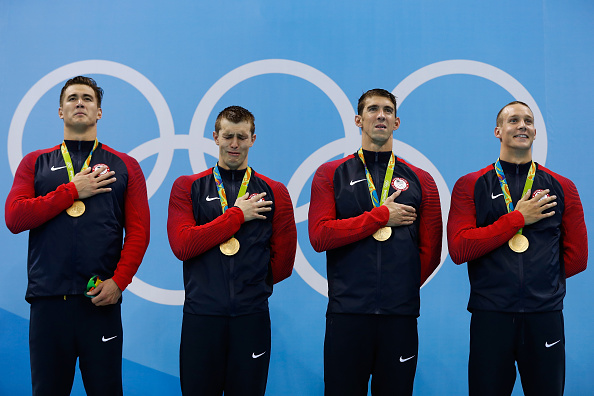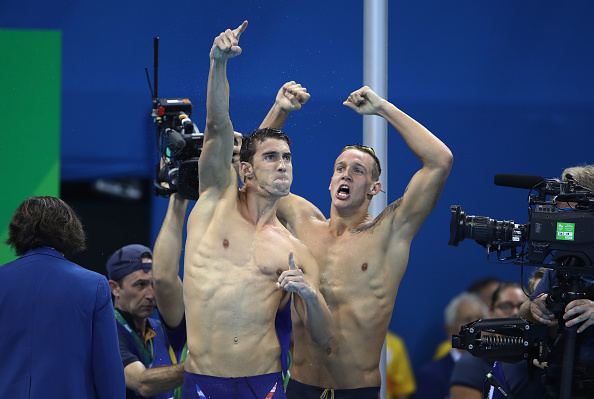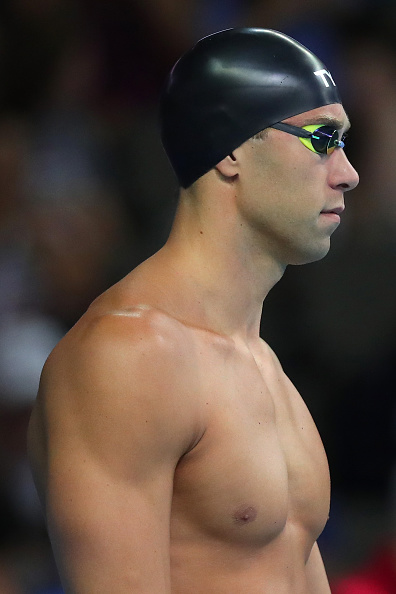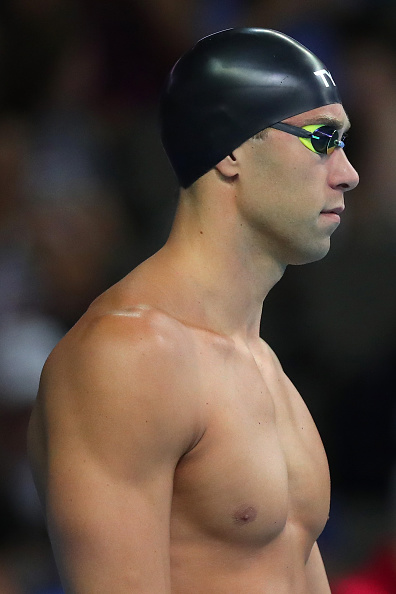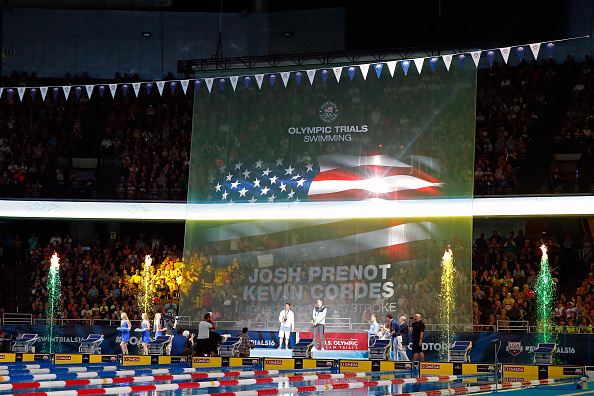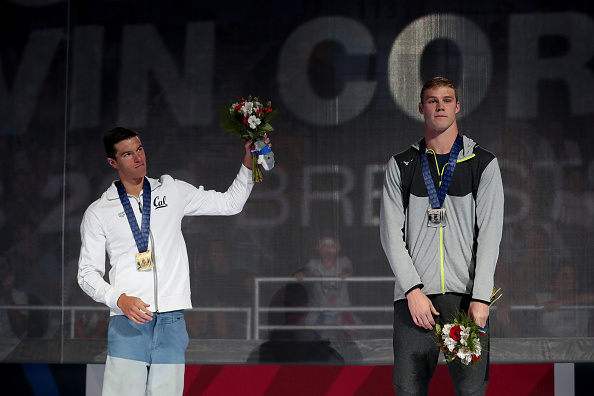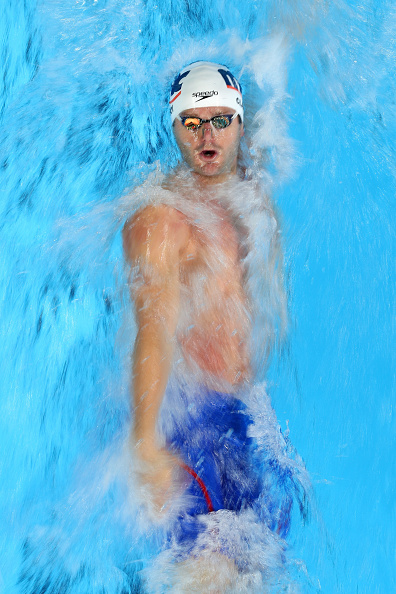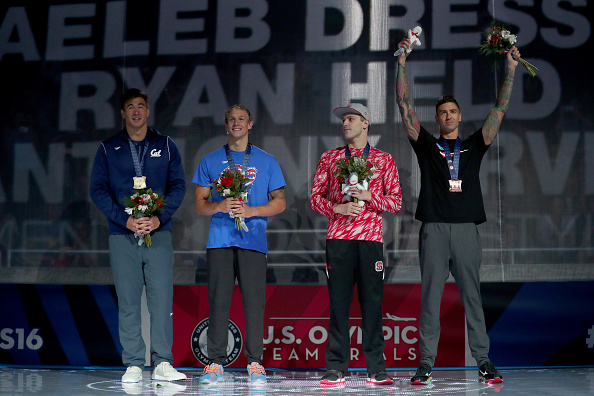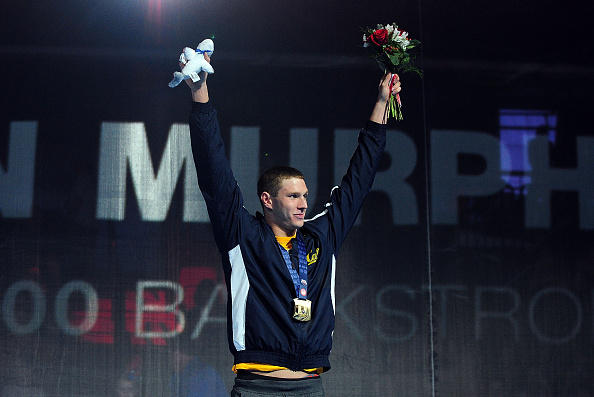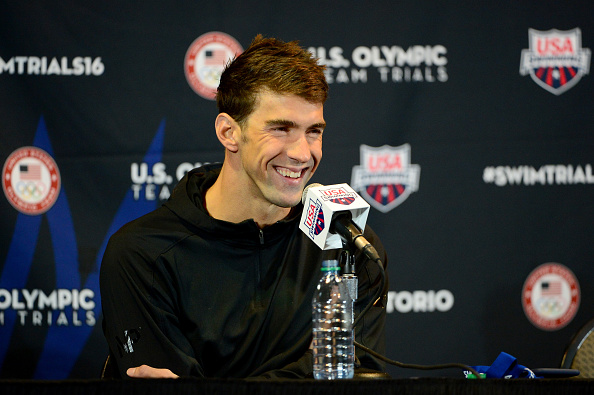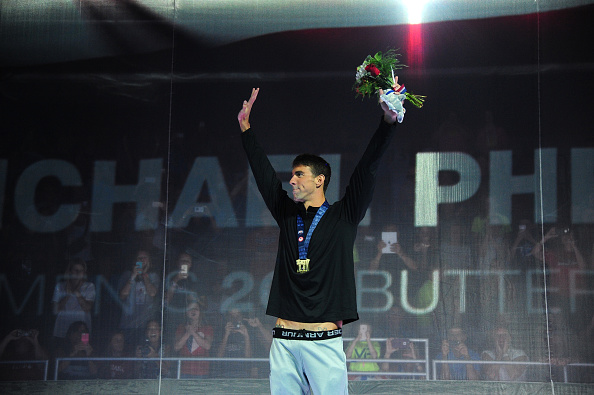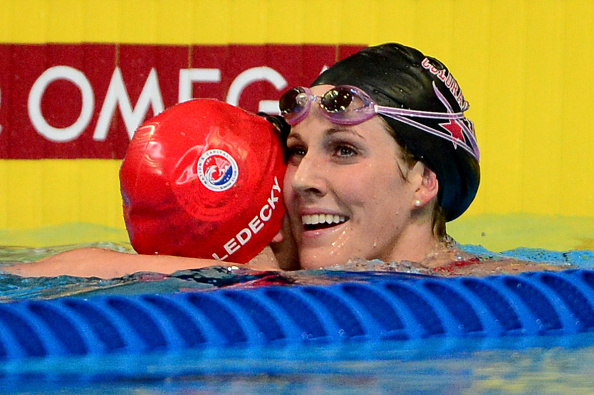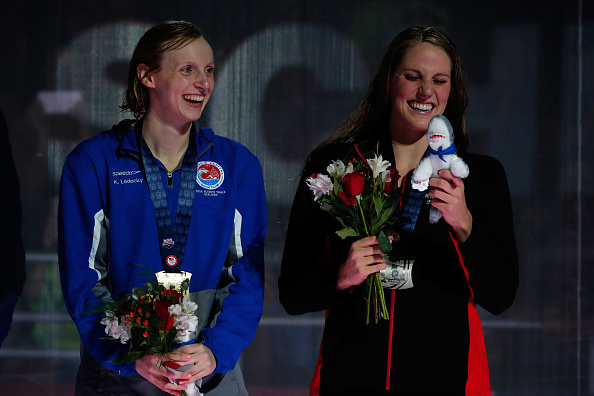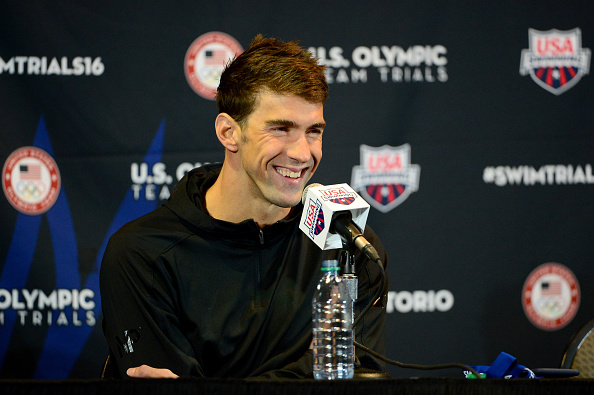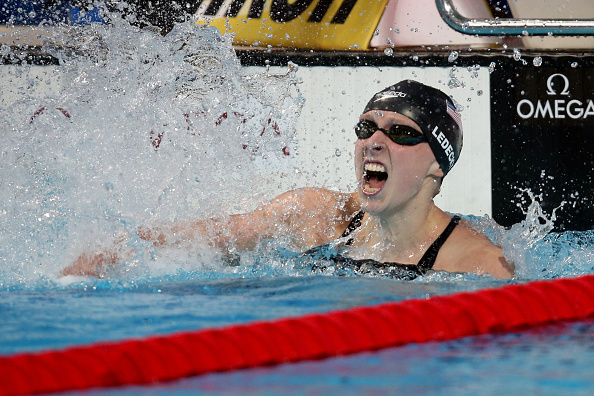KAZAN, Russia — David Plummer is a championship backstroker. Here, he served as a captain of the U.S. team. Two years ago, at the world championships in Barcelona, Plummer earned silver in the 100 back. Here, though, he managed only a ninth-place finish, not even good enough to make the finals, ultimately won by Australia’s Mitchell Larkin.
As the 2015 world championships drew Sunday to a close, Plummer turned to Twitter, and some philosophy from the Brazilian novelist Paulo Coelho:
“I ask myself: are defeats necessary? Well, necessary or not, they happen…
“The secret of life, though, is to fall seven times and to get up eight times.
“Only when we overcome [our trials] do we understand why they were there.”

The quest for understanding begins now.
These 2015 Kazan world championships marked arguably the American team’s poorest performance in the history of the world championships, dating to 1973.
When all was said and done, the U.S. ended up with 23 medals, eight gold.
The American team’s weakest world championships performance, before this one: 1994, in Rome, with 21 medals, four gold.
Take out the two medals in the mixed relays, both new events (gold in the 4x100 free Saturday, silver in the 4x1 medley Wednesday) and the total drops to 21.
Those figures stand in stark contrast to the 2013 total: 29 overall, 13 gold.
Compare, too, to recent years: 29 and 16 at Shanghai 2011, 22 and 10 in 2009 (Rome again), at the height of the plastic-suit craziness.
The only Americans to win individual gold: Katie Ledecky (four), Ryan Lochte (one). That’s it. The other winners: that mixed relay, the women's 4x200 free relay (anchored by Ledecky), the men's medley.
The question heading toward a different set of Trials, next summer in Omaha, a few weeks before the Aug. 5 start of the Rio Games, is whether what happened here amounts to aberration or the confluence of potent trends that mean the United States’ long-established role at the top of the swimming world is at significant risk.
— It’s indisputable that, owing to the worldwide import of Michael Phelps, world-class swimming has gotten better and, more so, better in more places. Argentina won its first-ever medal here. So, too, Singapore. Akram Ahmed of Egypt took fourth in the men’s 1500 Sunday night. A record 189 nations competed in Kazan, up from 177 at Barcelona 2013.
— The Australians are back, and in a big way. The Aussies won one gold in swimming at the London 2012 Games, three in Barcelona. Here, seven gold, 16 overall.
— The Brits emerged as a force, in particular 200 free champ James May and breaststroke god Adam Peaty. Their final tally: five gold, nine overall.
— The Chinese have both talent and depth, with 13 medals overall, five gold, including Ning Zetao's victory in the 100; he is the first Asian to win swimming's male heavyweight fight.
Ning’s victory made things a little crazy on the internet in China. The Wall Street Journal reported that a CCTV host wrote on his verified account that Ning “is the husband in everyone’s dream.”
Never mind that Ning is just 22.
The same host, referring to the social media-app WeChat, “All women went crazy overnight, and pictures of all angles of his abdominal muscles swept my WeChat moments.”
By mid-day Friday, more than 100,000 web users had posted selfies with the hashtag “Ning Zetao’s Girlfriend.”
“We call handsome boys little fresh meat,” a Weibo user wrote. “But for special ones like Ning, he should be called little fresh fish.”
As for the Americans, and first the bright spots:
— Ledecky raced into the history books, winning five gold medals, the 200, 400, 800 and 1500, and that 4x200 free relay.
In all, Kazan 2015 featured 12 world records. Ledecky set three of them.
For the next year, she will be the face of the American team, which is lovely, because she not only wins, she wins with great class.
On Saturday, after her final race, the 800 free, which she won in world-record time, Ledecky met with the press, then as she was walking away from a media clutch, she met up with a gaggle of red-shirted volunteers who squealed in happiness that she would take a picture with them.
Unaware that three reporters were lingering behind, Ledecky said to the volunteers, “Thanks for all the great work you do.”
Ledecky and Kerri Walsh Jennings, the beach volleyball star, are in this way always gracious and polite to seemingly everyone they meet. Maybe it’s something about Stanford, which is where Walsh Jennings went and Ledecky is due to attend.
— Phelps, assuming he sticks to his vow to keep doing the hard work that swimming absolutely demands, figures to race for gold in at least three events next summer, the 100 and 200 flys and the 200 individual medley.
Swimming this week in San Antonio, at the U.S. nationals, Phelps won the 100 fly in 50.45, the 200 in 1:52.94. Both times would have won here.
More pointedly, both victories came amid some smack-talk from the likes of Hungary’s Laszlo Cseh, winner in Kazan of the 200 fly, and South Africa’s Chad le Clos, winner here of the 100 fly.
Le Clos won Saturday in 50.56, then declared Phelps hadn’t gone that fast in years.
Oops — just hours later in San Antonio, here came that 50.45, Phelps' fastest-time ever in the event in a textile suit.
Le Clos also said here, referring to Phelps, “I’m just very happy that he’s back to his good form so he can’t come out and say, ‘Oh, I haven’t been training,’ or all that rubbish that he’s been talking. Next year is going to be Muhammad Ali-Joe Frazier.”
Cseh won Wednesday in 1:53.48. Of Phelps’ 1:52.94 in San Antonio, the fastest time by any swimmer since Phelps himself in 2009, Cseh said, “It’s quite good but it doesn’t matter because I won the world championship.”
Gentlemen, we are not here to tell you what to say, or not, but history has shown repeatedly that if Phelps puts in his training blocks, you mess with fire when you blow this kind of smoke.
Ask the likes of Ian Thorpe, Ian Crocker and, famously, Milorad Cavic.
When Phelps has someone he can — in his mind — target, it has not gone well, swim-wise, for said target.
“The comments were interesting,” Phelps said Saturday in San Antonio. “It just fuels me. If you want to do it, go for it. I welcome it.”
— Lochte's victory in the 200 IM made for his fourth world championship gold in a row in the event.
At the same time, he finished fourth in the 200 free, same as in 2013 and 2012.
Lochte is for sure Mr. Reliable on the relays, where the American performance here — without Lochte or Nathan Adrian, the U.S. men failed to qualify for the 4x1 finals — showed just how valuable he is.
Here is the challenge for Lochte in the 200 IM come the U.S. Trials in Omaha and, presumably, Rio:
Phelps.
At an Olympics, the 200 IM traditionally comes on the same night as the 200 back, and thus it will be in Rio, on Thursday, Aug. 11. At previous Games, Lochte has opted to try to pull off that grueling double. In London, he took third in the 200 back, then silver — behind Phelps — in the 200 IM.
-- Connor Jaeger broke the 11-year-old American record in the 1500 on Sunday night, going 14:41.2. Larsen Jensen had gone 14:45.29 at the 2004 Athens Games.
Now for some question marks:
— This U.S. 2015 team was picked a year ago. Was that a good plan? No Caitlin Leverenz, Allison Schmitt, Jack Conger or others who might have made a difference.
— The U.S. sprinting program, excluding Adrian, needs someone to step up, and big time. No one did here.
— Tyler Clary had won a medal of some sort at the 2009, 2011 and 2013 worlds; he is the 2012 London 200 back gold medalist. Here? No medals.
-- Jaeger: That 14:41.2 earned him silver, 1.53 seconds behind Gregorio Paltrinieri of Italy, in 14:39.67. China's Sun Yang, the world record-holder and pre-race favorite, did not swim, saying he felt a heart problem -- literally his heart, not his desire to race -- before the call to the blocks. Jaeger's other Kazan races: fourth, 400 free; fourth, 800 free.
— The relays: That the U.S. men missed out on the finals of the 4x1 free is, in a word, inexcusable. The men’s 4x2 free relay finished second, the first time since 2004 the Americans had not won at a worlds or Olympics (the British took first, with Guy making up a 1.63-second deficit and then some, touching 42-hundredths ahead of Michael Weiss).
In 2001, the U.S. men won no relays. That had been the only time ever at worlds history there had been no U.S. men’s relay gold.
Thus the stakes were high for Sunday night’s medley, the Americans opting to lead off not with Matt Grevers — gold medalist in the 100 back at London 2012 and Barcelona 2013, silver medalist in the event at Beijing 2008 — but with Ryan Murphy, who threw out a 52.18 in the mixed medley relay heats.
The thinking? Larkin won the 100 back in 52.40. Murphy’s 52.18 made for the fourth-fastest time ever in the event.
Larkin kept the Americans close, third, with a 53.05; Larkin turned the race over with the Aussies in first, in 52.41. On the third leg, butterfly, Tom Shields put the Americans in first; Adrian held on to bring the Americans home to gold in 3:29.93.
Adrian's free split: 47.41.
The split for Australia's Cameron McEvoy, who was closing: 46.6.
— Dana Vollmer is back in training. She won the women’s 100 fly in London. Can she, now a new mom, make it all the way back to the top of the world stage?
— Missy Franklin? Ohmigod, she did not win every single thing she entered. What?!
Franklin did, for instance, come through, and in a big way, in that mixed 4x1 free relay, anchoring the team to victory and a world record.
As Franklin heads back home to Colorado, however, it’s clear that Ledecky is now the 200 free boss, so there’s that.
For another, Franklin was clearly not her best self here. She faded significantly on the last lap of Saturday’s 200 backstroke, a race she has owned for years. Summoned to swim the backstroke leg of the women's medley Sunday night, she managed 59.81, fifth; the Americans would end up fourth.
Franklin’s longtime coach, Todd Schmitz, told the Denver Post a few weeks ago that he has had to “rekindle” in her “the same kind of fire that I used to see.”
Franklin said Saturday she was “proud” of what she had done here, given the work she had put in over the past two months; she said she looked forward to seeing the results of a full year of going at it hard.
Plummer, meanwhile, has been chasing Rio since missing out on London 2012 by 12-hundredths of a second.
His ninth-place Monday in the 100 came while he was, literally, sick. “Have been battling a stomach bug, but I can't make any excuses,” he wrote on his Facebook page. “I have to find a way to be faster.”
On Sunday, in the 50 back, a non-Olympic event, Plummer finished eighth, of eight, in 24.95. Camille Lacourt of France won, in 24.23; Grevers took second, in 24.61.
Maybe, then, time for another quote that Plummer once cited, this one on his Facebook page, from “The Boys in the Boat,” the story of the University of Washington rowing crew that won gold at the 1936 Berlin Games:
"The trick would be to find which few of them had the potential for raw power, the nearly superhuman stamina, the indomitable willpower, and the intellectual capacity necessary to master the details of technique."
The deadline in this instance is already marked on swim calendars: the first day of the U.S. Trials in Omaha. It's Sunday, June 26, 2016.






